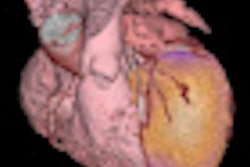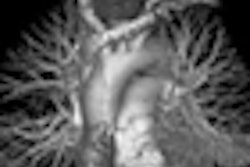
NEW YORK (Reuters Health), Jul 13 - For low-risk emergency department patients with suspected acute coronary syndrome, acute nuclear myocardial perfusion imaging (MPI) has the potential to safely reduce the number of hospital admissions and to lower overall costs, Swedish investigators report in the current issue of BMC Emergency Medicine.
According to lead author Dr. Jakob L. Forberg and colleagues at Lund University Hospital, 70% of emergency department patients admitted for suspected acute coronary syndrome prove not to have it. Previous reports indicate that MPI can be of clinical value in such cases.
In their prospective study, the researchers' goal was assess the utility and hospital economics of acute MPI in emergency department patients with suspected acute coronary syndrome.
Included were 40 patients (mean age 55 years; 50% female) admitted from the emergency department for chest pain but who had normal or nonischemic ECG and no previous MI. All underwent acute MPI prior to hospital admission.
Results showed that 27 patients had normal MPIs, and none of these patients had acute coronary syndrome. Thus, sensitivity and negative predictive values were 100%.
On the other hand, specificity was 71%, and the positive predictive value was 15%.
The team estimates that if MPI was a diagnostic strategy in such cases, 67% of patients would have been immediately discharged, overall costs per patient would have been reduced by an average of 267 euros, and bed occupancy would be lowered by 0.8 days.
Drawbacks of MPI include the high cost of the test itself, the radiation exposure, and the low positive predictive value. Moreover, the authors state, "MPI would probably not be suitable for centers where nuclear cardiology experts are not present or where the patient volume is small."
Because previous research has shown reduced sensitivity when performed in patients at moderate risk, Dr. Forberg and associates advise that "acute MPI should only be used to reduce 'unnecessary' admissions in low-risk acute coronary syndrome patients, and that the individual chest pain patient should be thoroughly risk-stratified before deciding the diagnostic method."
Still, they conclude, appropriate use of acute MPI "would allow limited health care resources to be focused on patients with true acute coronary syndrome, where rapid intervention clearly improves the prognosis."
BMC Emerg Med 2009.
Last Updated: 2009-07-13 8:00:51 -0400 (Reuters Health)
Related Reading
High-efficiency SPECT MPI camera does well, June 17, 2009
Copyright © 2009 Reuters Limited. All rights reserved. Republication or redistribution of Reuters content, including by framing or similar means, is expressly prohibited without the prior written consent of Reuters. Reuters shall not be liable for any errors or delays in the content, or for any actions taken in reliance thereon. Reuters and the Reuters sphere logo are registered trademarks and trademarks of the Reuters group of companies around the world.


















